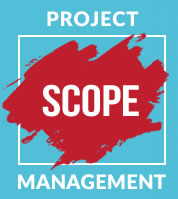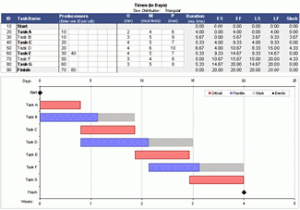Applying Project Management Skills to Litigation Cases
Or … How to Save a Fortune
Litigation is expensive. Uncontrolled litigation is financially devastating. The blog discusses applying basic project management skills to litigation cases. By employing this approach, the potential to significantly reduce both the legal and expert witness costs is enhanced. A partnership between the case attorneys and the expert witness is a must for success.
We have been involved in cases where there is no scope, schedule or financial controls. This results in tremendous cost to the client and significant frustration on the part of the expert witness. Our experience in litigation is significantly different than working with an operating company where scope, cost and schedule are tightly controlled…where it is expected to hit all scope, schedule and cost targets.
Significant cost savings can be expected by applying basic project management rules and techniques to legal cases. These include:
- Feasibility Study
- Scope
- Budget
- Schedule
- Project Execution Team
FEASIBILITY STUDY
The first step in many projects is a Feasibility Study to determine if the project can be executed and deliver the expected results at reasonable cost. Options are evaluated, rough costs are estimated and economic evaluations are completed. After this first step is completed, decisions are made regarding whether or not to continue with the project.

In some of the legal cases in which I have been involved, it was obvious that winning the case was going to be difficult and settlement or abandoning the case should be considered. In other words, the feasibility of winning the case was low. An example is a project cost dispute where the contract was time and materials and there was a large overrun, however the project completed on time and functioned properly. In this case all time and materials were signed off by the owner. Although the costs were higher than expected, the plant functioned properly, was completed on time and there was no indication of fraudulent charges. Recovery of the T&M overrun is highly unlikely and the case should be dropped. This of course reduces legal and expert fees and is the right decision. Both the expert and the legal team should have input on the decision based on the best outcome for the client.
SCOPE
 The Scope of the expert evaluation must be clearly defined. This includes which documents will be reviewed, schedule, general contents of the expert report and other deliverables. Legal cases can have thousands of discoverable documents and review of a significant portion of the documents is expensive and time consuming. However, the law firm should be able to identify a small subset of documents that are relevant to the expert evaluation. If some documents are missed it is possible these will be brought up in the opposing expert report, giving our expert the opportunity to challenge this in the rebuttal report.
The Scope of the expert evaluation must be clearly defined. This includes which documents will be reviewed, schedule, general contents of the expert report and other deliverables. Legal cases can have thousands of discoverable documents and review of a significant portion of the documents is expensive and time consuming. However, the law firm should be able to identify a small subset of documents that are relevant to the expert evaluation. If some documents are missed it is possible these will be brought up in the opposing expert report, giving our expert the opportunity to challenge this in the rebuttal report.
Placing the burden on the expert team to review all documents can result in confusion and ultimately results in increased schedule and cost. We recently worked on a case where this was done and we had to implement complex sorting programs, add to the staff and extend the schedule and budget.
BUDGET
 A clear Budget based on the agreed scope of work needs to be established and strictly controlled. There must be frequent and clear communication on progress on milestones versus expenditures. In the event of changes in scope, this must be controlled by a strict change order process. Each expert must understand they are obligated to meet their estimated budget targets. If additional funds are needed they must be based on increased scope rather than the expert failing to meet committed targets. If this process is not well defined and controlled expert costs can balloon to two or three times the amount anticipated during project kick off.
A clear Budget based on the agreed scope of work needs to be established and strictly controlled. There must be frequent and clear communication on progress on milestones versus expenditures. In the event of changes in scope, this must be controlled by a strict change order process. Each expert must understand they are obligated to meet their estimated budget targets. If additional funds are needed they must be based on increased scope rather than the expert failing to meet committed targets. If this process is not well defined and controlled expert costs can balloon to two or three times the amount anticipated during project kick off.
SCHEDULE
 A Milestone Schedule is an important control document for all major capital projects. In many cases the schedule for a legal case is simply the expert report is due on this date and the trial or arbitration is on a second later date. The schedule must have more defined target dates. These can include initial award, kick-off meeting, document transmittal dates to the experts, follow-up meetings, expert report draft date and final report and arbitration dates. Deliverables should also be tied to the milestone dates. There needs to be good communication between the expert and law firm on development and changes in schedule.
A Milestone Schedule is an important control document for all major capital projects. In many cases the schedule for a legal case is simply the expert report is due on this date and the trial or arbitration is on a second later date. The schedule must have more defined target dates. These can include initial award, kick-off meeting, document transmittal dates to the experts, follow-up meetings, expert report draft date and final report and arbitration dates. Deliverables should also be tied to the milestone dates. There needs to be good communication between the expert and law firm on development and changes in schedule.
PROJECT EXECUTION TEAM
 The success of any project is highly dependent on the quality and compatibility of the Project Team. This includes the experts and legal team. It is imperative that the legal and expert teams team interface as partners throughout the project. Legal counsel should strive to have familiarity with the subject of the dispute to maximize the probability of case success. Although this sounds obvious, I have worked on construction disputes where the law firm had no construction case experience. This happened since the law firm selected was the normal client law firm rather than an experienced construction litigator. I have also worked on cases where there were conflicts between the legal and expert team. These conflicts must be quickly resolved and personnel changed as soon as possible to correct this situation.
The success of any project is highly dependent on the quality and compatibility of the Project Team. This includes the experts and legal team. It is imperative that the legal and expert teams team interface as partners throughout the project. Legal counsel should strive to have familiarity with the subject of the dispute to maximize the probability of case success. Although this sounds obvious, I have worked on construction disputes where the law firm had no construction case experience. This happened since the law firm selected was the normal client law firm rather than an experienced construction litigator. I have also worked on cases where there were conflicts between the legal and expert team. These conflicts must be quickly resolved and personnel changed as soon as possible to correct this situation.
THE PATH FORWARD
Significant cost and time can be saved by implementing basic project management systems at the beginning of the case. This “front-end loading” will establish clear scope, work processes, deliverables, schedule and change process. If this is done – and a qualified team is in place – the chance of success is greatly increased.
Becht has extensive experience supporting legal disputes. We have a large staff with broad experience in all aspects of the refining, petrochemical, power generation and renewable industries. For more information on our capabilities, please contact Rick Hoffman. Or, if you have a general question about Becht Services please click the link below:






